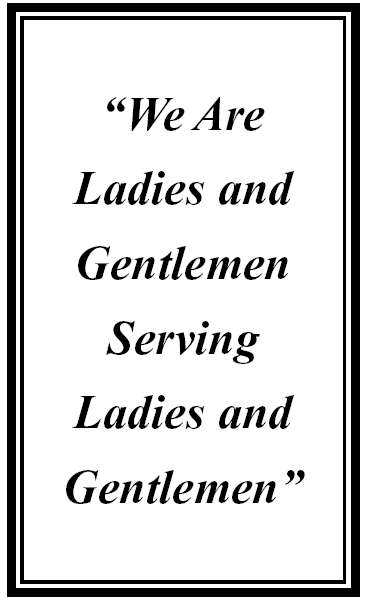The Ritz-Carlton Hotel Company operates eighty-seven luxury hotel and resorts in twenty-nine countries/territories across the world. The current company, founded in 1983, began its journey in Boston, Massachusetts before expanding the chain around the globe.
Apart from providing a safe and luxurious space for visitors to stay and relax, the Ritz-Carlton provides an exceptional customer service experience. Many years ago, President and COO Horst Shulze saw the importance of catering to customers and instituted the customer/employee centered motto, “We are Ladies and Gentlemen Serving Ladies and Gentlemen”. Shulze also created a set of specific service standards on which all employees base service.
For decades now, the Ritz-Carlton has become known for its commitment to and delivery of excellent customer service. So well known is the company for its customer service, it has created the Ritz-Carlton Learning Institute and The Ritz-Carlton Leadership Center, where executives from companies of differing fields from around the world come to learn The Ritz-Carlton principles of service.
To date, the Ritz-Carlton Hotel Company has been featured on Zagat Survey Top Lists for dining, hotels and service numerous times. The Ritz-Carlton is also the only company to ever win two Malcolm Baldridge National Quality Awards. Furthermroe, Schulze was recognized for his work at Ritz-Carlton with Corporate Hotelier of the World Ishikawa Medal for contributions to the Quality movement.
So how does the Ritz-Carlton provide such great service?
The Credo:
The Ritz-Carlton Hotel is a place where the genuine care and comfort of our guests is our highest mission.
We pledge to provide the finest personal service and facilities for our guests who will always enjoy a warm, relaxed, yet refined ambience.
The Ritz-Carlton experience enlivens the senses, instills well-being, and fulfills even the unexpressed wishes and needs of our guests.
Not only does the company’s motto and credo impart the necessity of customer appreciation, but they put their money there their mouth is. Literally.
As Micah Solomon of Forbes noted, for many years now, the Ritz-Carlton has given each staff member two thousand dollars of discretionary money (that’s every employee for every hotel guest) to be used to solve any customer issue, in a manner deemed most appropriate by the employee.
Yes, that’s a lot of money, but it works.
When employees are given freedom and trusted to do a good job, they gain autonomy and acquire confidence. They are empowered.
When dealing with a troubled customer, these employees can start the interaction from a flexible and generous position. In return, customers naturally act more understanding. As a result, the sometimes vicious cycle that customer service can be turns virtuous. Though it has been confirmed that no employee has ever used their entire sum of discretionary money, the knowledge that it exists is a true builder of strength and responsibility for the employees.
So how does this translate to the non-profit world?
A donor is a customer. A customer of an admirable service, but nonetheless a service. Just like all of the best companies in the world, it should be your priority to create a customer-centric organization.
In order to keep your donors happy, your organization’s employees should be able to respond to consumer concerns in a powerful and immediate way. They need to be able to address service failures without making the customer jump through hoops until they are frustrated and ready to give up.
I know non-profit organizations are not luxury hotels and that they cannot provide each employee with a discretionary budget. But the idea of empowering your employees is a valuable one, and one to think about in your organization.
Giving employees the autonomy to solve problems quickly and personally is crucial in a world where consumers can post anything they want on the Internet for millions of people to see. Your front-line employees need to have immediate and broad discretionary powers in order to be able to satisfy customers or turn around a negative experience.





